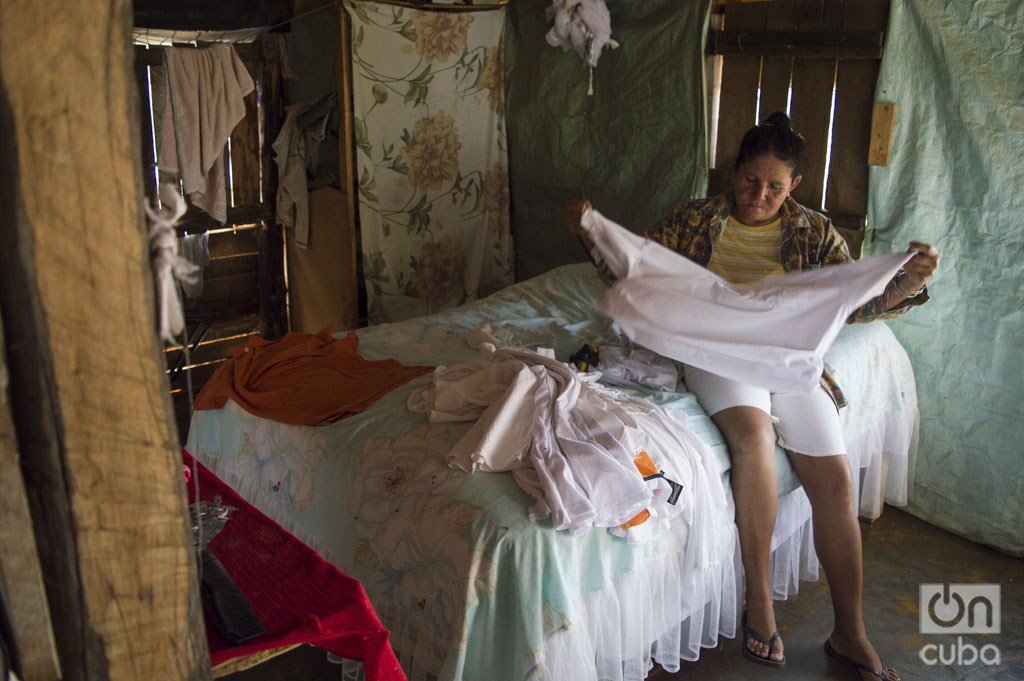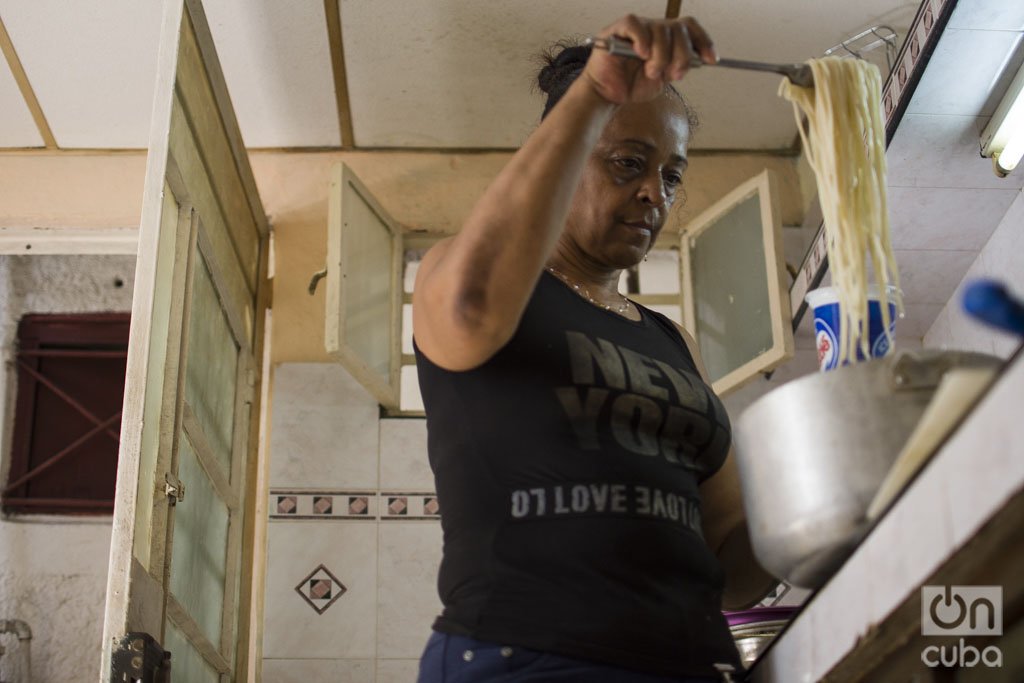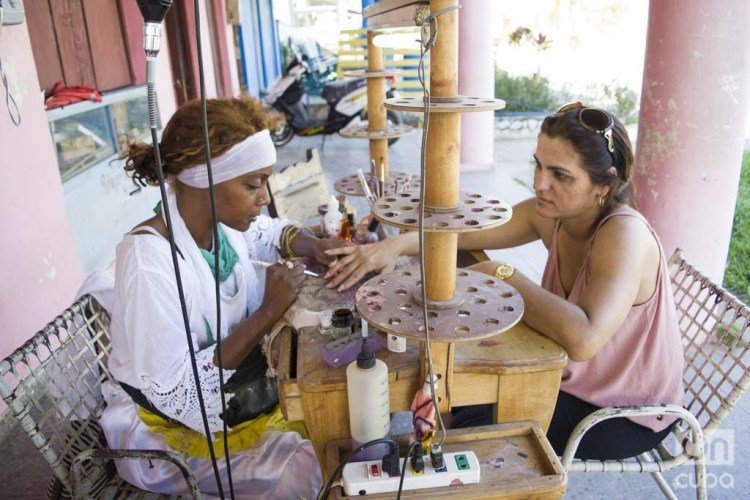The discussion about gender-based violence has gained visibility in Cuba. The institutions that have worked on it and those that have done nothing or little know it. The victims, many, know it. It is known by those who are activists against religious reactionary isms and all types of conservatism. It is also known by those who fear that a fairer society for women will take away privileges. It is known by sexists who brag that gender-based violence does not exist, that gender-based inequality does not exist, that gender does not exist.
On November 21, forty citizens asked Parliament for a Comprehensive Law against Gender Violence. A month later, the President expressed that the issue of gender-based violence was highly sensitive. Although there seems to be awareness of the matter, the proposal to draw up a Comprehensive Law did not classify within the legislative Schedule approved in 2019, where another 107 high-ranking norms did fit. There is no sign that this fact will change, although it would be desirable. Part of the citizenry is still following the matter.
According to institutional statements, the alternative to the absence of a specific norm on gender-based violence in Cuba is to transversalize in other legal norms the confrontation against it. In reality, they are not excluding options, but that fact still has no consensus in institutional policy or on the legislative agenda. One option won over the other. Let’s talk about that one.
Transversalize what?
In this context, transversalizing means one concrete thing: all the norms in which it is possible to deal with violence against women will mention it and regulate it for the benefit of all of society.
If so, let’s take the broadest and strongest step possible. Let’s redouble the commitment: let us propose to transversalize in the legal body not only the struggle against gender-based violence but also the struggle against gender-based inequality.
Gender-based violence exists because there is inequality between men and women. Violence against women has nothing to do with the idiosyncrasy or culture of any nation. It has to do with inequality. And that inequality is evident in the realms of work, ownership relations, institutional functions, the media, and so on.
In Cuba’s National Report presented a few weeks ago at the 14th Regional Conference on Women in Latin America and the Caribbean, three specific challenges were recognized to achieve gender-based equality in the country: the presence of gender stereotypes, high rates of teenage pregnancies and lack of care services for children, the elderly and people with special needs. In these three areas, the current situation limits the exercise of Cuban women’s rights and citizen equality. But there is more.
In Cuba, women have a lower presence than men among the Economically Active Population, in the highest income sectors and specifically in the private and cooperative sector. Women dedicate many more hours to unpaid work within households (in addition to the aforementioned inadequacy of care services). Women are less landowners.
Another issue that needs to be established in laws concerns the sexual and reproductive rights of women, which have been constitutionally recognized recently. The right to abortion, for example, is part of the institutional practice of the Ministry of Health, to our benefit, but it is not guaranteed in any high-ranking legal norm.
The media reproduce gender stereotypes, also seen in different types of cultural spaces and productions. Women are less in the catalogs of national awards and high-level labor recognitions, although they have a greater presence among university students in the country and in leadership positions.
At the same time, the maternal and infant mortality rate is extremely low; women and men are equal before the law; in the state sector the labor participation rate is almost equal; there are more women in universities and study centers. None of that contradicts the previous paragraph. Gender-based violence exists in Cuba and gender-based inequality, too. If we are going to transversalize, let’s do it completely.

Legislative schedule: A window of opportunity?
Over a hundred high-level norms will be created or reformed in the coming years. With respect to the subject that concerns us here, the need is clear: to ensure that all laws and decree laws contribute to deactivating gender-based inequalities and violence.
With this sifting, we could think of a Law on Enterprises that promotes women’s enterprises, generating specific credits for women entrepreneurs, for example, given that the presence of women in the private sector is low and they work mainly as employees and not as business owners.
It is also time to have a Labor Code that guarantees the compliance of labor rights in the private sector (not that it mentions them, but that it guarantees them), including maternity and paternity leave, childcare, time for providing care, etc. It is clear that that is not the case today. That same Code should force state and non-state workplaces to build and have protocols that are activated in cases of gender-based violence, and ensure the protection of women workers.
The reforms to the Law on Social Security would have much to contribute in this regard. Will that law recognize pensions for unpaid household workers? Will it contribute to the democratization of care (children, the elderly and people with special needs) and the state responsibility for them?
The future Law on Public Health must also respond specifically to the needs of women in the country. To comment about obstetric violence and enable programs to manage better support (not only medical, but comprehensive health) to pregnancies and deliveries for mothers and fathers. It is imperative that this norm also speak of sexual and reproductive rights and shields them against any retrograde or conservative attempt. That Cuban women have the right to interrupt their pregnancies if they want, to contraception, maternal and child care, etc. must be clearly established in that Law and not only in instruments of lower hierarchy. Sexual and reproductive rights for all, legally guaranteed.
The Decree Law on Communication would have to make reference and fight against gender stereotypes, sift through national contents and productions and foreign programming, actively seek democratizing content, create messages that ensure equity and shake the discriminating common senses. And the same goes for the Decree on Improvement of the Ministry of Culture. Media and art play an important role in the reproduction of stereotypes and their deactivation. How will they recognize and regulate those future norms?
The Law on Cinema could encourage the formation and work of the women creators and think of democratizing ways―in terms of gender and others―of producing, creating, distributing.
Norms that would seem alien to these matters also need rethinking. Let’s pay attention to the Law on Housing in a national context with serious difficulties for access to decent housing. In cases of gender-based violence in the family environment (systematic aggressions, rapes or incestuous abuses, etc.) one of the most dramatic problems is that, when the aggressors are sanctioned (in cases where they are), after serving their sentences they return to the home where the victims still live, who have nowhere to go and cannot divide their homes if they are not the owners. Could we think of the possibility of legal, legitimate and transparent norms and procedures that face the challenge of frequent dispossession of victims of violence?
The Laws on Education and Higher Education would necessarily have to refer to gender-based inequality and violence. To generate protocols for cases of violence and to accompany victims. To include in the curricular contents programs for the prevention of gender-based violence and against sexist stereotypes; and about inequality to denature and unveil it. To train the teaching, management and administrative staff on these issues. To ensure better conditions so that those who are mothers can continue their studies and those who are parents are co-responsible for the care.

The Children’s, Infancy and Youth and Family codes will obviously be vital for the promotion of equity in domestic spaces in every way: regarding the use of time, marital ownership, domestic and intra-family violence. Also in ensuring that children, adolescents and young people have a life free of violence and equal education.
The Criminal Code, of course, must change radically; as well as the laws on Criminal Procedure and Civil, Labor and Economic Procedure. Recognizing gender-based violence (and not just intra-family violence) and femicide as a specific crime is their obligation. It is also necessary to include, in several ways and without delay, the training on gender of the police and judicial corps, to ensure that the perverse and inoperative police and criminal procedures that are currently functioning and that can re-victimize the victims and institutionally unprotect them are changed. The Law on People’s Courts should schedule similar contents and carry out their duties in their field of competence.
The next Law on Identity could incorporate many of these contents in its own agenda. To promote the recognition of transfemicides and the multiple exclusions (economic, political and recognition) to which transgender, intersex persons, with non-binary sexual identities and sexual orientations of all kinds are subjected.
Finally, it is essential that the next Law on Associations be open to the really existing society and allow the legalization of collectives and groups that connect in the common interest of working for gender-based equity, the democratization of gender relations and the struggle against violence, and others, of course. The current weak norm that only allows one association per social field―one for “women,” another for “workers,” “farmers,” “ornithologists” or whatever―must end immediately. The existing efforts are multiple and can be convergent for the causes of gender-based inequality, for the benefit of the country.
Of the 107 norms in the known schedule, one of them, the Family Code, will be taken to a referendum. The content of the others will depend on commissions and working groups appointed from the corresponding ministries or the National Assembly.
Regarding inequality and violence against women, will there be people with knowledge and training in each of these commissions? Will they be up to the needs of Cuba for that issue? What voices or institutions will ensure that they are also fair laws for women?
Institutional policy actors should answer those questions. Citizens will have to be vigilant and have an active voice.










